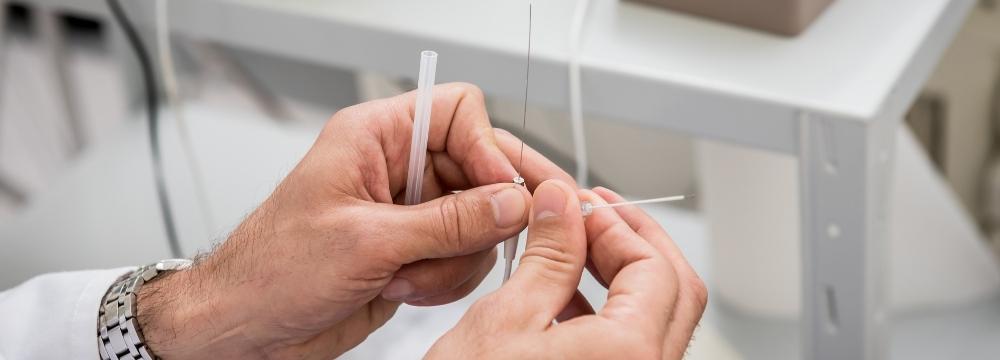Will My Catheter Ablation Hurt?

If you have been researching treatment options since being diagnosed with atrial fibrillation, you have likely come across an exceptionally effective treatment option known as cardiac catheter ablation. Catheter ablation uses heat (RF waves) or cold (cryotherapy) to ablate or destroy malfunctioning heart tissue causing arrhythmia. In properly selected patients, cardiac catheter ablation can be highly successful and safe and does not preclude further interventions to the heart should they be necessary for the future.
For such an effective and safe procedure, there must be a catch, right? It must hurt. The truth is that ablation is part of a notable trend toward minimally invasive intervention, using catheter technology in cardiology. During the procedure, a small incision is made in the groin, and a spaghetti-like catheter is threaded up a vein to the heart. Your electrophysiologist will use ultrasound or x-ray technology to follow the catheter and ensure it ends up in the right place. Everything necessary to perform the procedures is contained within the tip of the catheter, making it very straightforward.
During the procedure, you will be sedated or under general anesthesia. This minimizes any pain or discomfort you may experience. After the procedure, you may continue to feel episodes of Afib for a while longer as the heart adapts to the ablation. You may also feel some discomfort in your chest. This is typically normal, and you will learn more about what to expect from your electrophysiologist and the post-procedure packet they provide.
Because the only incision is in the groin, there will be some discomfort or pain associated with that. However, remember that the incision is small, and we prescribe pain medication if needed to mitigate the pain.
It is important to remember that pain is also subjective. What might be painful for one person may not be for someone else. It is hard to quantify how much pain you will experience after surgery, but when compared to other surgical interventions, the pain level of our patient’s report is very low.
Typically, you are back up and about within a few hours of the procedure and performing regular activity within a few days. Any discomfort rapidly diminishes after that.
Of course, if you have concerns about the sensations you may feel after ablation, we encourage you to reference your postoperative packet or call our office for more information. For any emergencies, it is essential that you dial 911 immediately. Most importantly, if you have been selected for catheter ablation, your electrophysiologist believes that the benefits far outweigh the risks. Our doctors have leveraged technology in the field to minimize procedure times – most of his ablations are performed in under an hour while also minimizing radiation exposure to the patient by using advanced ultrasound technology for guidance.







